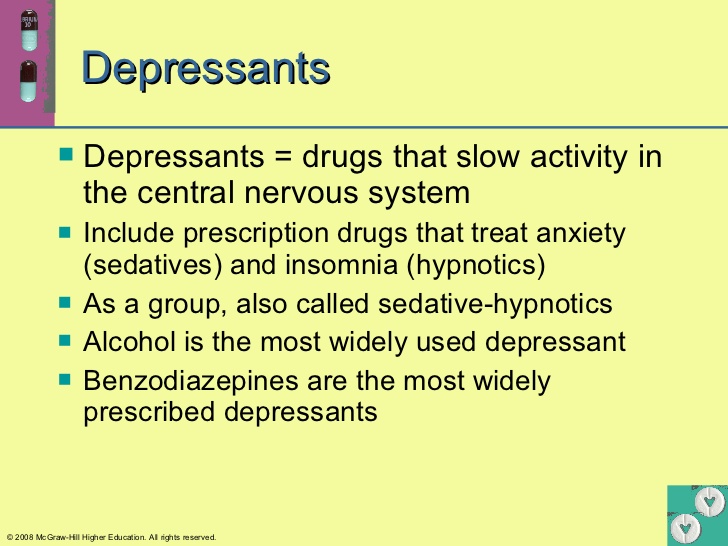Mark Halsey is a licensed therapist, founder, and chief editor of Clean Break Recovery. With over a decade of addiction treatment experience, Mark deeply understands...Read more
Barbiturates have been used as sedatives, hypnotics, and anticonvulsants since the early 1900s. But are barbiturates stimulants? In this article, we’ll explore the effects of barbiturates on the human body and see whether or not these drugs can be classified as stimulants. We’ll also discuss the potential risks associated with taking barbiturates and the potential benefits of taking them, if any. So, let’s dive in and find out if barbiturates are stimulants or not.
No, Barbiturates are not stimulants. They are sedatives and hypnotics, substances that depress the central nervous system, causing relaxation and drowsiness. Barbiturates are often prescribed to treat insomnia, anxiety, and seizures, but they can be highly addictive and have a high risk of overdose, so they are not commonly used anymore.

Are Barbiturates Stimulants?
Barbiturates are a class of drugs that act as central nervous system (CNS) depressants. They are primarily used as sedatives and hypnotics, and are often prescribed to treat anxiety, insomnia, and seizures. While barbiturates are not classified as stimulants, they can have stimulant-like effects in some individuals. In this article, we will discuss the effects of barbiturates on the body, the potential for abuse, and the risks associated with their use.
What Are Barbiturates?
Barbiturates are a class of drugs that act as central nervous system (CNS) depressants. They are prescribed to treat anxiety, insomnia, and seizures. Common barbiturates include phenobarbital, pentobarbital, and secobarbital. Barbiturates work by increasing the activity of the neurotransmitter GABA, which helps to reduce the activity of nerve cells in the brain and spinal cord. This results in a calming, sedative effect.
Can Barbiturates Have Stimulant Effects?
While barbiturates are not typically classified as stimulants, they can have stimulant-like effects in some individuals. Barbiturates can increase alertness, energy, and reduce fatigue, which can lead to a feeling of euphoria. These stimulant-like effects can be dangerous and can lead to abuse.
Are Barbiturates Addictive?
Barbiturates can be addictive, and tolerance and dependence can develop with long-term use. Barbiturate dependence can lead to withdrawal symptoms such as anxiety, insomnia, tremors, and seizures. It is important to note that barbiturates are much more potent than many other drugs and can be fatal in large doses.
What Are the Risks of Taking Barbiturates?
Barbiturates can cause a wide range of side effects, including confusion, depression, dizziness, drowsiness, nausea, and vomiting. Long-term use can lead to physical and psychological dependence, and sudden withdrawal can cause severe withdrawal symptoms. Barbiturates can also interact with other drugs and alcohol, which can increase the risk of overdose.
Conclusion
Barbiturates are a class of drugs that act as central nervous system (CNS) depressants. While barbiturates are not classified as stimulants, they can have stimulant-like effects in some individuals. Barbiturates can be addictive, and tolerance and dependence can develop with long-term use. Barbiturates can cause a wide range of side effects, and can interact with other drugs and alcohol, increasing the risk of overdose. It is important to speak with a doctor before taking barbiturates to ensure that they are safe and effective for you.
Few Frequently Asked Questions
What are Barbiturates?
Barbiturates are a class of central nervous system (CNS) depressants that were once widely prescribed to treat insomnia, anxiety, and seizures. They are synthetic drugs that are chemically related to barbituric acid, a naturally occurring substance found in plants. Barbiturates act by slowing down the activity of the brain and the central nervous system, producing a calming effect.
Are Barbiturates Stimulants?
No, barbiturates are not stimulants. They are CNS depressants, meaning they have the opposite effect of stimulants, which are drugs that increase energy and alertness. Barbiturates reduce brain activity, resulting in a sedative and calming effect.
What are the Side Effects of Barbiturates?
Common side effects of barbiturates include drowsiness, dizziness, headache, lightheadedness, confusion, depression, slowed breathing, and low blood pressure. Long-term use of barbiturates can lead to addiction, physical dependence, and tolerance.
Can Barbiturates be Abused?
Yes, barbiturates can be abused. Barbiturates are highly addictive, and people may take more than the recommended dosage in order to get a euphoric effect. Abusing barbiturates can lead to a range of physical and psychological side effects, including respiratory depression and coma.
What are the Risks of Taking Barbiturates?
The risks of taking barbiturates include physical dependence, addiction, tolerance, and overdose. Barbiturates can also interact with other drugs and alcohol, increasing the risk of serious side effects. It is important to use barbiturates only as directed by a doctor and not to take more than the recommended dose.
Are There Alternatives to Barbiturates?
Yes, there are alternatives to barbiturates for treating anxiety, insomnia, and seizures. These alternatives include benzodiazepines, non-benzodiazepine hypnotics, anticonvulsants, and antidepressants. It is important to talk to a doctor about the risks and benefits of each medication before taking any medication.
1956 “ THE DANGEROUS DRUGS ” ANTI-DRUG FILM ON BARBITURATES AND AMPHETAMINE ABUSE XD46704
In conclusion, barbiturates are not stimulants. Barbiturates are sedatives and central nervous system depressants. They are used to treat anxiety and insomnia, as well as some medical conditions, such as seizure disorders. Barbiturates can be dangerous in large doses and should only be taken as prescribed by a doctor. While barbiturates are not stimulants, they can still be dangerous if taken improperly. It is important to consult with a doctor before taking any form of medication.
Mark Halsey is a licensed therapist, founder, and chief editor of Clean Break Recovery. With over a decade of addiction treatment experience, Mark deeply understands the complex needs of those struggling with addiction and utilizes a comprehensive and holistic approach to address them. He is well-versed in traditional and innovative therapies, including cognitive-behavioral therapy, motivational interviewing, and mindfulness-based interventions.
More Posts